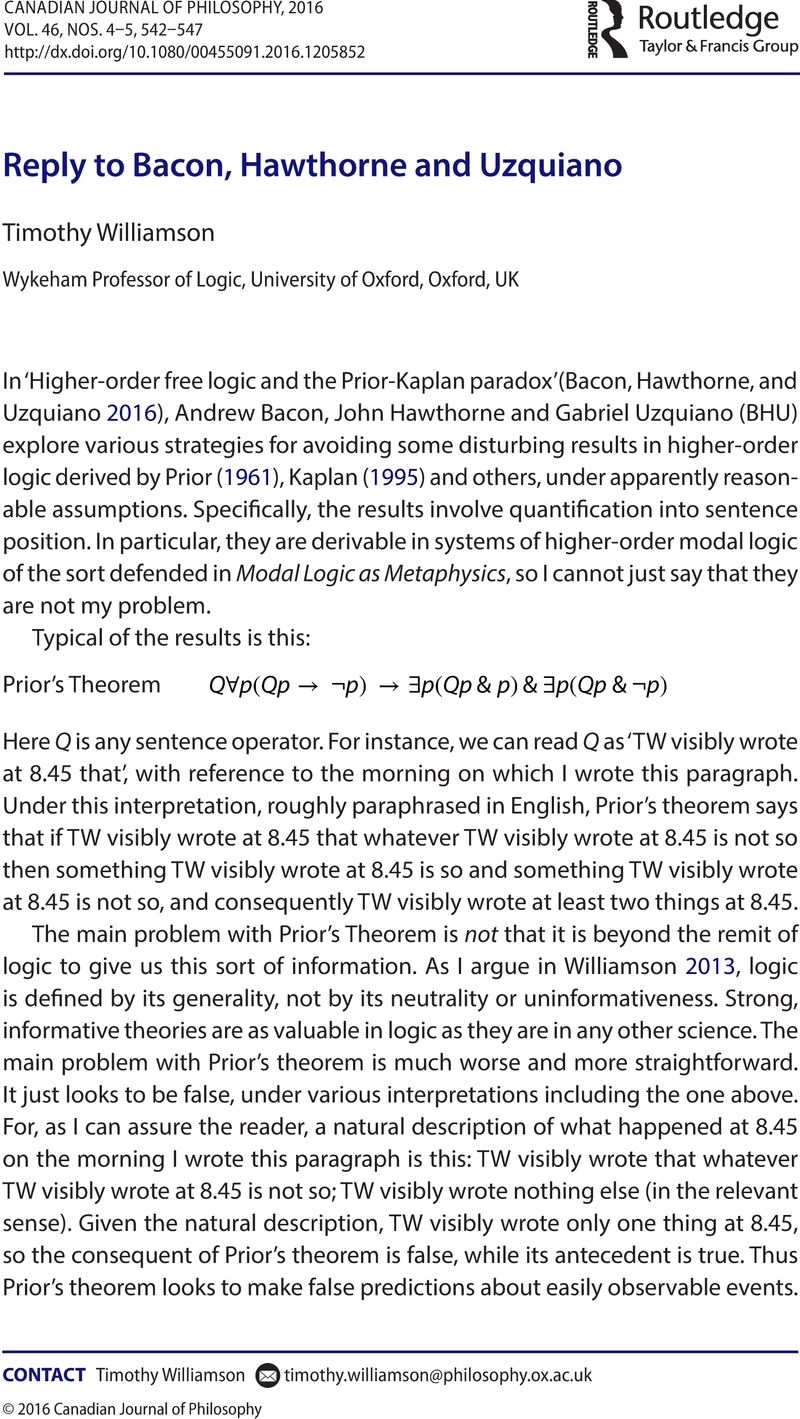Crossref Citations
This article has been cited by the following publications. This list is generated based on data provided by Crossref.
Orilia, Francesco
and
Landini, Gregory
2019.
Truth, Predication and a Family of Contingent Paradoxes.
Journal of Philosophical Logic,
Vol. 48,
Issue. 1,
p.
113.



